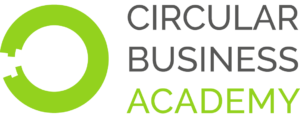The Case-Study Workshop is CBA’s unique training format enabling participants to actively engage with members of the host firm who sets a real-life challenge and selected Circular Expert Practitioners.
In the upcoming session the participants will work in groups to find solutions for the business case study arising from the challenge set by Rilke Labs. In the conclusive part of the programme, each group will present their solutions to the host firm and get feedback from them and from our Circular Experts.
Participation, registrations and groups composition
Working groups will be consisted of a maximum of 6 people each, including a group leader (CBA Circular Expert practitioner) and one representative from the host firm’s management team.
The number of available seats in groups (ideally 4) is therefore limited. Early registrations are welcome. The selection will be made upon first come – first served basis, priority will be given to CBA Circular Expert Practitioners. Other participants are welcome to take part as observers.
About Rilke Labs
Rilke Labs is an R&D start-up providing value recovery solutions in material flows along different value chains. Rilke’s solutions make use of state-of-the-art technologies ranging from advanced detectors, custom-built devices, and computing systems based on machine learning and computer vision.
A flow of end-of-life materials is one of the most complex compositional streams. Dealing with complexity is one of the required virtues enabling the upscale of the materials and increasing their value. This relates to waste treatment facilities as well as value-chain relations and inbound logistics.
Rilke Labs’ frontrunning solution THERESA is a complete data-gathering and monitoring platform based on innovative AI technology for material identification and revealing data analysis to support business operations. It consists of an in-house developed automated monitoring device with a machine vision system and state-of-the-art AI backbone trained neural network, as well as an advanced IT platform for data science with easy-to-use mobile and desktop web user interfaces.
In its immediate application, THERESA is bringing benefit by increasing throughput and reducing downtime of any kind of material recovery facility, all while mitigating the risks involved in handling the complex material stream. In addition, it enables a number of integrated B2B services offered to different target groups within the value chain.
Business case challenge
Defining Rilke’s service portfolio based on THERESA’s technology by taking into account opportunities arising from diversified market expansion into new value chains and a composite revenue model
“As a startup, a number of challenges lie ahead. We have so far demonstrated the usability of the technology in the sorting of municipal waste streams. However, we are looking for other specific areas of application. Furthermore, finding a suitable revenue model (e. g. technology transfer, subscription, etc.) for that specific market is a crucial step in the commercialisation. Ideally, you would help to design a portfolio of Rilke Labs’ services enabling a circular economy based on THERESA’s technology.”
Rilke Labs’ Management Team
Specific challenges to be addressed:
- Target market, target segments and value-chains and early adopters
- Revenue model, IP
- Designing a business proposition
Working group outcomes to be combined in a final synthesis:
a) Service specification (groups 1, 3)
b) Service organisation (groups 2, 4)

